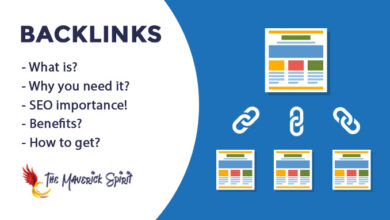Navigating 2024: 5 Key Innovations Shaping the Future
As we move through 2024, rapid advancements and shifts in technology, culture, and society are reshaping the world around us. These innovations are transforming how we live, work, and engage with one another, setting the stage for an exciting and unpredictable future. From the rise of artificial intelligence to the growing focus on sustainability, these trends are not just fads—they are driving forces that will define the years to come.
Here are five key innovations in 2024 that are changing the game across industries and everyday life.
1. AI-Driven Innovation: The New Norm
Artificial intelligence (AI) is becoming more deeply integrated into everyday life, evolving from a tool used in isolated applications to an essential element in nearly every industry. AI is transforming industries like healthcare, education, finance, and entertainment, driving unprecedented efficiencies, cost savings, and personalization.
In 2024, AI’s most visible impact is on personalization. AI algorithms are revolutionizing the way people consume content, make purchases, and even manage their homes. Smart devices equipped with AI can learn individual preferences and optimize experiences. Whether it’s recommending your next favorite Netflix series, predicting health issues through wearable tech, or customizing online shopping experiences, AI is making everyday interactions smarter and more seamless.
In industries like healthcare, AI is now being used to streamline diagnostic processes, enabling faster detection of diseases through AI-powered imaging and pattern recognition. The development of predictive healthcare is allowing doctors to offer preventive care, based on individual data, that is tailored to each patient. AI’s role in automating routine tasks and processes is also shaping the future of the workforce, prompting debates about how automation will impact jobs and industries in the coming decade.
2. Sustainability Takes Center Stage
The global demand for sustainability has moved from the periphery to the core of business strategies, with companies, governments, and consumers making significant efforts to address climate change and environmental challenges. In 2024, sustainability is no longer an optional pursuit but a necessity, as both consumers and stakeholders expect brands and institutions to adopt eco-friendly practices and products.
One of the most visible trends is the rise of the circular economy, a system where resources are reused and recycled, reducing waste and extending the life cycle of products. Brands in sectors like fashion, electronics, and food are increasingly adopting sustainable practices—such as using recycled materials, reducing plastic waste, and opting for energy-efficient manufacturing processes.
Consumers, too, are more environmentally conscious, demanding transparency and sustainability from the brands they support. This is leading to a rise in sustainable alternatives to traditional products, such as plant-based foods, biodegradable packaging, and energy-efficient technologies. In response to these pressures, governments are enforcing stricter environmental regulations, promoting renewable energy, and incentivizing businesses to adopt greener technologies.
In tandem, innovative startups are pushing the boundaries of sustainability. Lab-grown meat, vertical farming, and zero-emission transportation are just some of the innovations gaining traction in 2024, as part of the larger effort to combat climate change and ensure a sustainable future.
3. Remote Work: Redefining the Office
The workplace has undergone a radical transformation, with remote and hybrid work models taking root as the dominant form of employment in many sectors. As a result, companies are rethinking what the “office” means, offering employees more flexibility and reimagining physical workspaces as collaborative hubs.
Remote work is not a temporary phenomenon; it has become a preferred mode for employees seeking better work-life balance. Many companies have adopted hybrid models, allowing employees to split their time between working from home and the office. This trend is reshaping corporate real estate, with large offices being downsized in favor of smaller, multifunctional spaces that cater to occasional in-person collaboration rather than daily attendance.
Technology has been a key enabler of this shift, with businesses heavily investing in collaboration tools, cloud computing, and enhanced cybersecurity to support a dispersed workforce. Video conferencing, project management software, and other digital tools are bridging the gap between remote teams, and fostering communication and productivity.
However, remote work also poses challenges, particularly around employee engagement and maintaining company culture. To address this, companies are experimenting with new strategies to keep employees connected, such as virtual team-building exercises and offering perks tailored to remote workers, like flexible schedules and wellness programs.
4. The Metaverse: A New Digital Frontier
The concept of the metaverse—an immersive, digital universe where users can interact, create, and socialize—has exploded in popularity in 2024. With advancements in virtual reality (VR), augmented reality (AR), and blockchain technology, the metaverse is evolving into a fully-fledged ecosystem, blending elements of gaming, commerce, education, and social interaction.
Tech companies like Meta (formerly Facebook) and Apple are pioneering the development of virtual spaces where users can attend virtual concerts, shop in digital stores, or collaborate in immersive office environments. These experiences are enhanced by the use of VR headsets and augmented reality glasses, bringing the metaverse closer to reality.
The metaverse isn’t just about entertainment; it’s a transformative space for business and education as well. Digital storefronts, virtual real estate, and online learning platforms are rapidly developing, offering new opportunities for entrepreneurs, teachers, and innovators. Meanwhile, brands are capitalizing on the metaverse’s potential for marketing and customer engagement by creating unique, interactive experiences within these virtual worlds.
5. Mental Health: The Wellness Revolution
Mental health has gained recognition as a vital part of overall well-being, and in 2024, it is becoming a priority for individuals, workplaces, and governments alike. The rise in mental health awareness is changing the way people approach their well-being, with more emphasis on self-care, therapy, and stress management.
Digital mental health solutions are flourishing, with apps offering everything from meditation and mindfulness exercises to AI-driven therapy sessions. Teletherapy has also grown in popularity, as it provides a convenient, accessible way for individuals to seek mental health care. Virtual therapy platforms are making it easier for people to access support, particularly for those living in remote or underserved areas.
In the workplace, mental health programs are increasingly seen as a must-have rather than a perk. Companies are investing in employee wellness initiatives, offering benefits such as mental health days, on-site counseling, and workshops designed to reduce stress and improve well-being.
Governments are also stepping up, with policies aimed at addressing the growing mental health crisis. Increased funding for mental health services and public awareness campaigns are part of a larger movement to destigmatize mental health challenges and ensure access to care for everyone.
Conclusion
2024 is a year marked by groundbreaking innovation and transformation. As AI becomes a constant companion, sustainability emerges as a business imperative, and remote work reshapes the workplace, we are witnessing shifts that will shape the future. The rise of the metaverse and the growing focus on mental health further highlight the evolving priorities of individuals and organizations. Embracing these changes will be key to thriving in a rapidly transforming world.



